
 Flash News
Flash News
Ceno Klosi with over 800 stolen votes, Balluku finds the reason is the tiredness of the counters
"Fast & Furious" in the former Block, police chase an Audi Q8, 4 cars collide
Car hits two tourists on a motorcycle in Fushe Arrëz, one of them dies
Serious accident in Thumanë, one dead, 3 injured
Durrës Court suspends the director of Pre-University Education from duty
The battle for Dibra, the poor district under the shadow of past electoral crimes
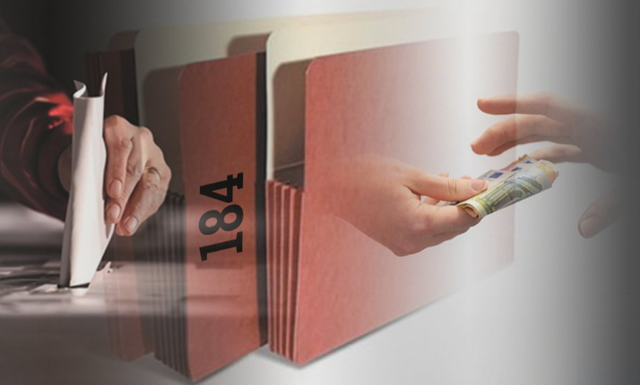
The Dibra region is the third smallest region in Albania after Kukës and Gjirokastra and is expected to mandate 5 deputies on May 11. Dibra is also the region that, over the past two decades, has experienced some of the most stunning political changes, changes which, far from being the result of any local temperament seeking political diversity, are the product of some of the most well-documented and ugly electoral crimes in Albania's recent history.
The region has a total of about 130,000 voters, and this number has been almost constant over the last three elections. Voter turnout has dropped from 60% in 2013, to 53% in 2021, and to 45% in the 2023 local government elections.
The 2009 election results were solid for the Democratic Party, with 58% of the votes received by its coalition, while the Socialist coalition received 32% and a coalition led by the SMI received 6%. At that time, 6 MPs were elected in Debar, and the split of votes between the opposition parties of the time, the SP and the SMI, gave the DP four mandates, leaving the SP with two and the SMI with a lost vote.
The situation changed dramatically in the 2013 elections, when the SP and the LSI ran in coalition together and managed to get 49% of the votes, leaving the DP and its coalition with 46%. Consequently, the six mandates in the district were divided 3 by 3, where in the ranks of the left of the time, one mandate was won by the LSI and 2 by the SP. The result was nevertheless significant because the change compared to 2009 was drastic. In the 2009 elections, the SP coalition and the LSI coalition jointly won 38% of the votes, while four years later, their result improved to 49%, amid accusations of massive use of vote buying by the LSI.
The grand coalition of the SP-LSI achieved one of its key victories in Dibër in 2013 and it seems that it began to crumble from within there. In May 2016, a sex scandal was revealed involving the then mayor of Dibër, Shukri Xhelili, and in September of that year, the Socialists entered into an alliance with a number of local strongmen, ironically known as the “Cham Factor” because they ran on behalf of the Justice, Integration and Unity Party without any real connection to the Cham issue or to the Albanian communities expelled from Greece at the end of World War II.
The “Çam Factor” and the SP itself achieved a spectacular victory in the early mayoral elections in September 2016, unaware that a complaint by the Democratic Party to the prosecutor’s office had led to the wiretapping of many of the structures. The prosecutor’s office did not act in fact either to prevent the electoral crime or to punish it after it had occurred, but the investigative materials, which leaked to the media years later, revealed the most significant episode of electoral crime in Albania and also highlighted the lack of scruples on the part of the socialists in using any kind of manipulation, from open violence and buying votes with money, to firing opposition supporters or removing economic aid for families who refused to cooperate.
In the 2017 elections, the so-called “Çam Factor” in Dibër won almost 13,000 votes and one mandate as an MP, which was nominally independent of the SP, but practically supported Rama. This was one of three mandates that the PDIU won in those elections, with the other two in Elbasan, but in both cases, with the documented participation of organized crime structures.
The final result of the 2017 elections was that the Socialists received 35% of the vote, the DP fell to 30%, the LSI and the PDIU each received 17%, sharing the six mandates of district 2,2,1,1. The small district thus became particularly colorful with four parties nominally represented in parliament.
As for the SP-Faktori Çam alliance, in February 2018, the latter appeared to use baseball bats in a dispute over the division of the spoils of victory in the form of public sector jobs in the area.
In the 2021 elections, a Democratic commitment against vote buying provided a well-documented case of public officials who had gone out of their way to buy votes for socialists.
The final result was that the Democrats managed to recover their long-standing losses in votes and won with a narrow majority against the Socialists. The Socialist Movement for Integration again managed to win over 4 thousand votes in this district, but the division of votes in this case had no effect on the result. The Democrats received 3 parliamentary mandates, while the SP won two mandates.
In the 2023 local government elections, SP candidates won all four municipalities in the region by a wide margin, while local elements of the “Çam Factor” this time emerged as candidates for councilors of Tom Doshi’s Social Democratic Party. In all four municipalities, the Social Democrats managed to get almost 6,000 votes for councilors. These votes, if won again in the May 11 elections, will not be enough and are far from securing a mandate, but since Dibra elects five mandates, meaning it is one of the districts with an odd number, every vote counts and depends a lot on which party erodes these votes. Since in the race between the majority and the opposition, the fifth mandate is won by the party that manages to get even one more vote than the other.
In the 2021 elections, the Democrats won 278 votes more than the Socialists, and this difference gave them the mandate. If counted together with the LSI, which received around 4,500 votes, of course the result was much deeper than that, but it is unclear whether the LSI, which has been an electoral machine in the past, still has the same strength in the district after eight years in opposition.
Demographic and social profile
The Dibra region lies in a hilly and mountainous area, with a predominantly rural population, with mixed economic activity, partly agriculture and livestock and partly mining industry, with mountain tourism developing in recent years. The region counted 107 thousand resident inhabitants in the 2023 Census, a decrease of 22% compared to 2011 and 43% compared to 2001.
About 35% of the population lives in the cities of Peshkopi, Bulqizë, Klos and Burrel, while 65% reside in a vast territory of rural areas.
Candidates
The former mayor of Kamza, Xhelal Mziu, heads the closed list of the opposition Democratic Party, while Blendi Klosi heads the Socialists. The closed list of the Democrats also includes Denisa Vata, a graduate in cinematographic arts who lives in Mat, while Alma Selami, a school principal and functionary of the Socialist administration, is second on the SP list. According to the odds, these four are on the winning lists of both parties, as each is expected to receive two mandates and the discussion is only about who will receive the fifth and final mandate. A total of ten candidates, five from each party, are competing for this final mandate, including former soldier Xhemal Gjunkshi, current MP, former LSI MP Përparim Spahiu, who worked in the private financial sector before entering politics, or journalist Basir Çollaku.
Agron Malaj, who was mayor of Burrel until recently, is hoping to win this mandate for the Socialists, competing with both opponents and his Socialist colleagues: Danjel Gjura, director of mortgages and road transport services in the region, Dritan Selishta, director of Taxes, and Murat Dani, a young man. Also on the list is Valentina Haliti, school director and district mayor for the Socialists, and Alketa Agolli for the Democrats, who says in her CV that she worked as a lawyer at the Vlora regional hospital.
Besjan Kica, who declares his employment as a "farmer", the only one encountered in BIRN's review of candidates' CVs who has this profession, leads the list of candidates of the Together Movement, a party for which two miners, a tourist guide, a receptionist and a call center employee are also running./ BIRN
Latest news





Lufta në Gaza/ Pse Netanyahu do vetëm një armëpushim 60-ditor, jo të përhershëm?
2025-07-02 21:56:08
US suspends some military aid to Ukraine
2025-07-02 21:40:55



Methadone shortage, users return to heroin: We steal to buy it
2025-07-02 20:57:35
Government enters oil market, Rama: New price for consumers
2025-07-02 20:43:30
WHO calls for 50% price hike for tobacco, alcohol and sugary drinks
2025-07-02 20:41:53






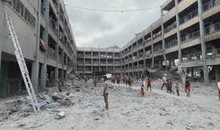
Israel agrees to 60-day ceasefire in Gaza, but many unanswered questions remain
2025-07-02 18:35:27
The weather in Germany is going "crazy", temperatures reach 40°C
2025-07-02 18:22:21
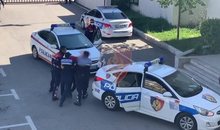
"Fast & Furious" in the former Block, police chase an Audi Q8, 4 cars collide
2025-07-02 17:59:25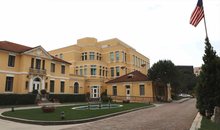
"Birth on a tourist visa? US Embassy warns Albanians: This is prohibited!"
2025-07-02 17:48:16
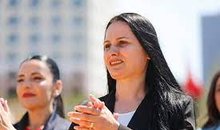

BIRN: Fier recount reveals vote trafficking within open political party lists
2025-07-02 16:57:19

CEO and former director of 'Bankers Petroleum' arrested in Fier
2025-07-02 16:40:42
Car hits two tourists on a motorcycle in Fushe Arrëz, one of them dies
2025-07-02 16:33:23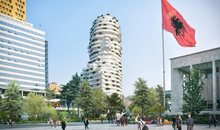


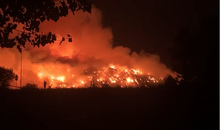
Fire at the Elbasan Incinerator Landfill, Prosecution Launches Investigations
2025-07-02 15:34:54
What you need to know if you travel to a country with active volcanoes
2025-07-02 15:33:03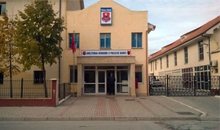
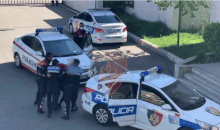


EU proposes 90% reduction in greenhouse gases by 2040
2025-07-02 14:50:23
Europe is burning from the heat / Italy and France are on maximum alert
2025-07-02 14:36:52

Moscow's contradictory statements: Is the friendship with Vučić breaking down?
2025-07-02 14:21:05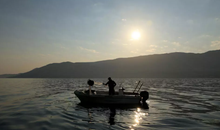
'I lost my battle': Sea warming is killing fishing in Albania
2025-07-02 14:08:35
Sekretet kimike që ndihmojnë në mbajtjen e mjaltit të freskët për kaq gjatë
2025-07-02 14:01:26
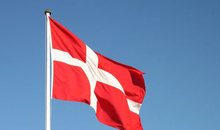
Denmark makes historic decision to make military service mandatory for women
2025-07-02 13:44:33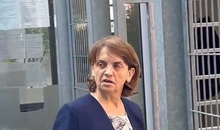
The appeal of the GJKKO leaves former judge Pajtime Fetahu in prison
2025-07-02 13:30:20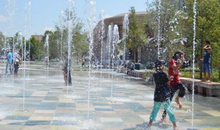
Productivity losses could reduce GDP by 1.3% as a result of extreme heat
2025-07-02 13:21:04
He abused his minor daughter, Zamir Meta is left in prison
2025-07-02 13:04:04
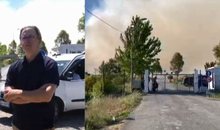
Waste burning in Elbasan, Alizoti: They are poisoning people and stealing money
2025-07-02 12:48:39
Civil disobedience continues in Serbia, dozens of people detained
2025-07-02 12:40:32
Rama's government was born under the sign of garbage and will end like this
2025-07-02 12:28:09
Water prices increase in the municipalities of the Elbasan region
2025-07-02 12:13:38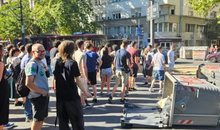
Civil disobedience continues in Serbia, what is happening in Belgrade?
2025-07-02 12:07:44
Serious accident in Thumanë, one dead, 3 injured
2025-07-02 11:54:42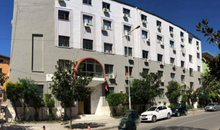
Durrës Court suspends the director of Pre-University Education from duty
2025-07-02 11:49:27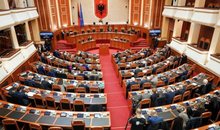
Plenary session on Thursday, what is expected to be discussed
2025-07-02 11:36:43
Europe is burning from heat waves/ What is the 'thermal dome' phenomenon?
2025-07-02 11:26:25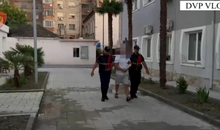
Wanted by Italy for murder, 45-year-old arrested in Vlora
2025-07-02 11:19:31
Fire situation, 28 fires reported in 24 hours, 2 still active
2025-07-02 11:13:20
"Buka" file, preliminary hearing for Ahmetaj postponed to July 17
2025-07-02 11:03:30
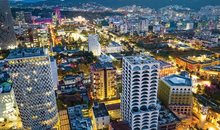

Baçi: Belinda Balluku and Ceno Klosi, the most dangerous "gangs" in Fier
2025-07-02 10:32:09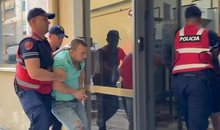
Zamir Meta, suspected of sexually abusing his daughter, arrives in court
2025-07-02 10:21:33

Trump: Israel has agreed to a 60-day ceasefire in Gaza
2025-07-02 10:01:55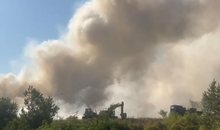
Fire continues at Elbasan landfill
2025-07-02 09:51:13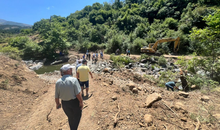

Dates to note during July, important events will occur
2025-07-02 09:31:45
The hearing for Jorgo Goro's claim is postponed
2025-07-02 09:24:19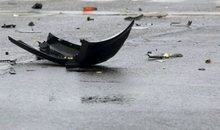

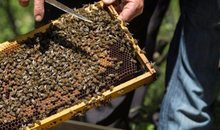

Foreign exchange, the rate at which foreign currencies are sold and bought
2025-07-02 08:42:31

52% of pensioners did not receive full pension in 2024
2025-07-02 08:27:18
Horoscope, what do the stars have in store for you today?
2025-07-02 08:13:36
Hot weather, Wednesday brings high temperatures
2025-07-02 07:59:16
Morning Post/ In 2 lines: What mattered yesterday in Albania
2025-07-02 07:46:15
Heatwave sweeps across Europe, Spain and England record hottest June ever
2025-07-01 22:57:41






Golem and Qerret without water at the peak of the tourist season
2025-07-01 21:09:32

Euractiv: Italy-Albania migrant deal faces biggest legal challenge yet
2025-07-01 20:53:38
BIRN: Brataj and Fevziu victims of a 'deepfake' on Facebook
2025-07-01 20:44:00

Vlora by-pass, work delays and cost increases
2025-07-01 20:24:29



Milan are expected to give up on the transfer of Granit Xhaka
2025-07-01 19:41:25

